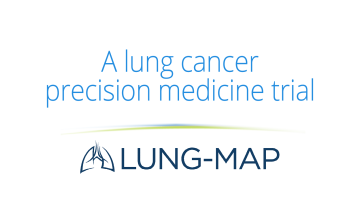Top Ten Resources for SWOG Committee Chairs
One of the challenges we face as a complex organization is that we have so many resources available for so many constituencies, it can be difficult keeping track of everything, and getting the right resources into the right hands.
To that end, here’s a cheat sheet for one key constituency – the leaders of our committees. The items below are certainly among the most valuable resources for a SWOG committee chair. A few are specific to research committees, but most are of interest to leaders of our research support and administrative committees and subcommittees as well. And to other Front Line readers!
To access some of the resources below that are on swog.org, you’ll first have to log in as a SWOG member. You can do this using your CTEP-IAM credentials or your SWOG Roster ID and password. If you’ve forgotten your password or have other difficulties authenticating, visit the login help page for guidance.
- Committee Chairs Protocol Development Dashboards
A product of our Protocol Resourcing Task Force, this set of six dashboards includes displays of committee data, staff data, studies in development, active studies, committee data incorporating complexity scoring, and complexity scoring details. - Committee Membership Rosters
This page includes links to the member rosters for all SWOG committees. Each name in a roster is linked to our directory entry on that member, so details are just a click away. - SWOG Publications Dashboards
This is a new set of dashboards for exploring our database of more than 5,000 publications and presentations related to SWOG research. We also have a publicly accessible interface for searching the publications database. - SWOG Trial Accrual Reports
Our Statistics and Data Management Center makes available this detailed breakdown of enrollment to SWOG studies, updated nightly. For historical accrual data, check out the Report of Studies archive. And for help with accrual to your studies, visit the accrual resources page. - SWOG Membership Directory
This member-only resource has basic contact, affiliation, and committee information for all 20,000+ SWOG members. This includes your executive officers and patient advocates, though you can also learn more about these key collaborators on our public Leadership and Our Advocates pages. - SWOG Policies
How does SWOG work? Most of the answers lie in the almost 50 policies linked from this page. Policy 10 (committee chair job description) and Policy 48 (translational medicine subcommittee chair job description) may be of particular value. - SWOG Training Opportunities
At our recent retreat, there was talk of wanting a single source for all SWOG training materials. Here it is: this publicly accessible page of training resources also includes a prominent link to SWOG's member-only training resources (access to this latter requires CTEP-IAM credentials). - Key NCI Websites
Websites for the Cancer Therapy Evaluation Program (CTEP), the NCI’s scientific steering committees, the Division of Cancer Prevention (DCP), and the NCI Community Oncology Research Program (NCORP) are packed with valuable information, including staff listings with contact information. - Hope Foundation Funding Opportunities
From funding for your committee’s events at group meeting, to grants to support the research of your early- and mid-career investigators, the opportunities listed here are ones you should memorize. - The Front Line
Reading this weekly blog is the best way to stay abreast of what’s happening at SWOG. If you’re not getting it every Friday, subscribe.
Yes, this is technically more than 10, but “top 23 resources” doesn’t have the same ring. Now ask yourself: should I bookmark this post?
________________________________________________________________
Trial of the Week
S2107: Randomized Phase II Trial of Encorafenib and Cetuximab with or Without Nivolumab for Patients with Previously Treated, Microsatellite Stable, BRAFV600E Metastatic and/or Unresectable Colorectal Cancer
S2107 continues SWOG’s work from S1406 developing better treatments for BRAF-mutated colorectal cancer (which accounts for about 10 percent of colorectal cancers). It incorporates an immune checkpoint inhibitor into standard treatment with encorafenib plus cetuximab in a group of patients with a particularly poor prognosis.
This trial is enrolling patients with metastatic or unresectable adenocarcinoma of the colon or rectum with BRAFV600E mutations who have proficient mismatch repair or microsatellite-stable status and who have had one or two prior lines of treatment. The primary endpoint is progression-free survival.
Since its activation in June of 2022, the study has enrolled 37 of its target of 84 patients. The trial is now open at about 240 institutions, with MD Anderson Cancer Center and Ochsner Medical Center Jefferson in New Orleans as the accrual leaders.
Van Karlyle Morris, MD, of the MD Anderson Cancer Center is study chair.
Learn more on the SWOG S2107 page or the CTSU S2107 page. An S2107 trial summary, CIRB-approved for use with your patients, is also available.
Other Recent Stories



